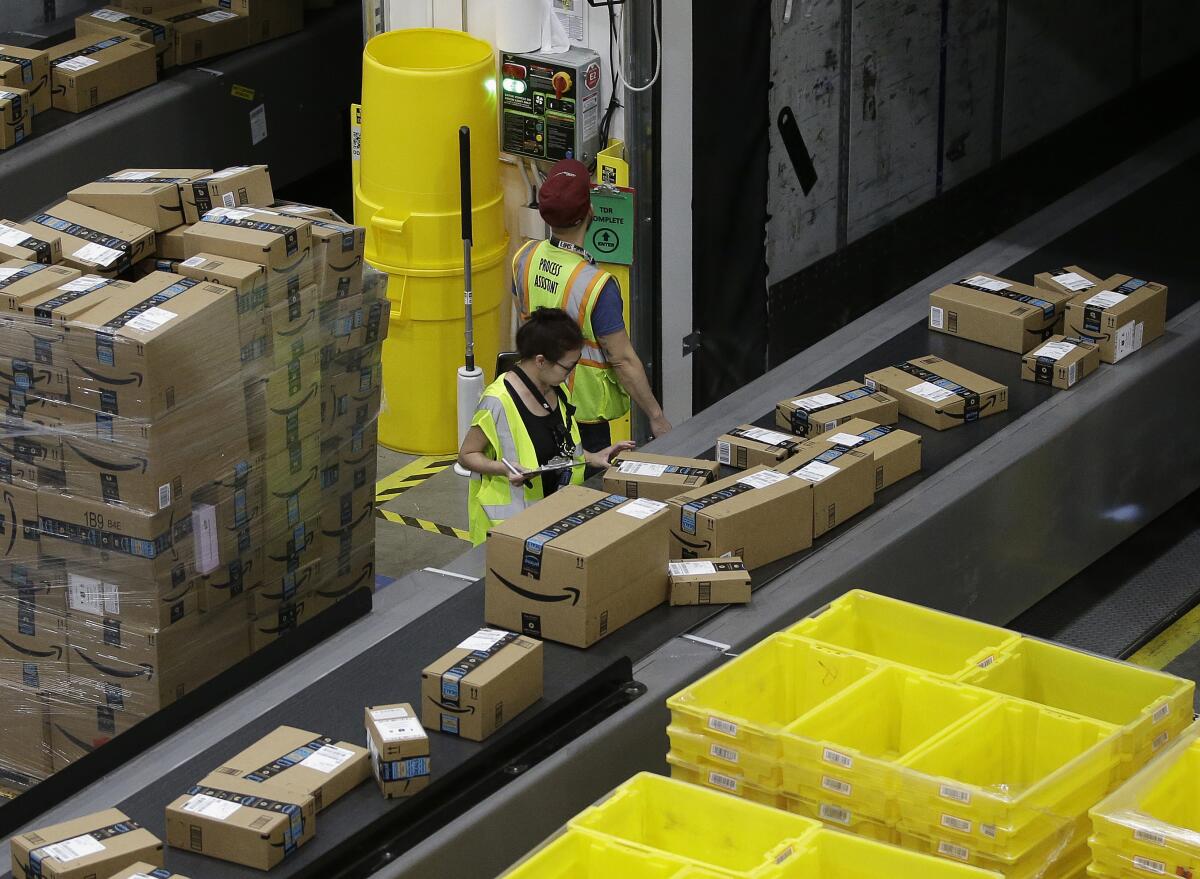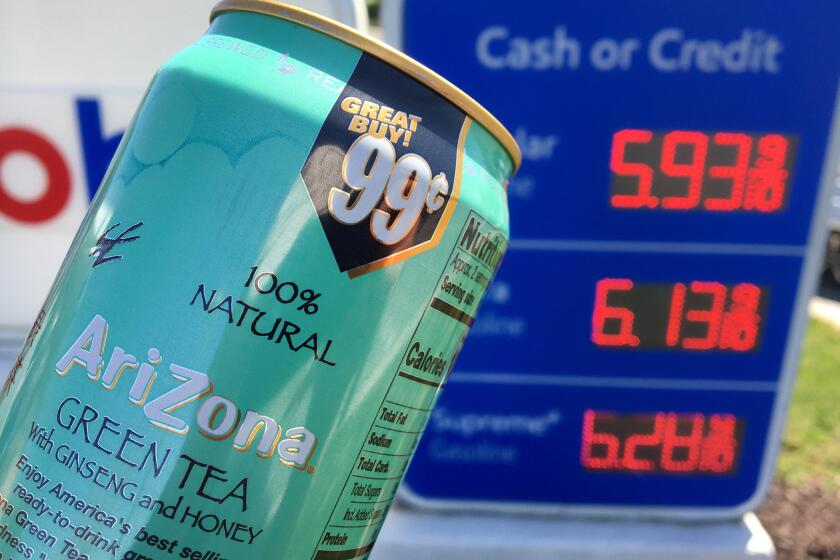Amazon sellers look to raise prices because of new 5% fuel and inflation fee

- Share via
Amazon.com Inc. will levy a 5% fuel and inflation fee on online merchants that use its shipping services, according to documents reviewed by Bloomberg, putting pressure on sellers to raise prices.
The surcharge, which will start April 28, is the latest sign of companies grappling with rising costs. It will apply to U.S. sellers that use the Fulfillment by Amazon service that stows, packs and ships products.
In March, U.S. consumer prices surged 8.5% from a year earlier, the biggest jump since late 1981. Gasoline prices, already high, have also soared since Russia invaded Ukraine.
The spiraling prices have prompted a variety of companies to take action to offset rising costs. Airlines are raising ticket prices, Uber Technologies Inc. and Lyft Inc. last month added fuel surcharges, and FedEx Corp. and United Parcel Service Inc. have increased prices, mostly through surcharges that vary by package type.
Amazon merchants were already grappling with cost-related fee increases that took effect in January and averaged 5.2%.
“Consumers will lose,” said Dan Brownsher, who runs Channel Key, a Las Vegas e-commerce consulting business with more than 50 clients selling products on Amazon. “Amazon already raised fees in January, so sellers will have to raise prices.”
In the email sent to Amazon merchants Wednesday, the company said it has made big investments since the start of the pandemic to meet surging demand. Those include doubling capacity, adding 750,000 employees and raising the average Amazon warehouse employee hourly wage to $18 from $15.
Tall cans of AriZona iced tea have cost 99 cents since 1992. The family behind the company says it’s committed to that price even as the prices of aluminum and corn syrup climb higher.
“Like many, we have experienced significant cost increases and absorbed them, wherever possible, to reduce the impact on our selling partners,” the email said.
“In 2022, we expected a return to normalcy as COVID-19 restrictions around the world eased, but fuel and inflation have presented further challenges. It is still unclear if these inflationary costs will go up or down, or for how long they will persist.”
Amazon’s relationship with merchants has been fraught in recent years. Sellers have complained to regulators that the company’s power lets it dictate terms. Besides paying Amazon to handle shipping, merchants say they are compelled to buy advertising to make their products stand out on Amazon.com.
Stacy Mitchell, co-executive director of the Institute for Local Self-Reliance, an advocacy group for small independent businesses, said the new fee “has the potential to be problematic when it comes to antitrust because Amazon locks you into using this service. It’s absolutely an antitrust vulnerability for Amazon because that’s what monopolies do is they corner the market and raise prices.”
The frequent Amazon critic said that the company took a 34% cut of each merchant’s sale on the site in 2021, up from 19% in 2014, and that the new fuel charge will push its take even higher.
“We absolutely will need to raise prices,” said Molson Hart, whose Viahart Toy Co. sells educational toys and other products on Amazon. “Some sellers cannot because customers are not accepting the new higher prices.”
Hart said he has already had to take lower profit margins on some larger toys that are more expensive to ship because consumers wouldn’t pay the higher prices.
“In general, people reduce purchases of nonessential items when money gets tight,” he said. “Hopefully, as an educational toy brand, parents will continue to view our products as essential but only time will tell.”
For Amazon, the marketplace business represents nearly a quarter of sales. The company had seller services revenue of $30.3 billion in the quarter that ended in December.
Elsewhere on the web, a fee increase at Etsy has caused some vendors to halt sales of their items on the site for a week in protest. Starting Monday, Etsy sellers must pay a 6.5% commission on each transaction, up from the 5% in place since 2018.
More to Read
Inside the business of entertainment
The Wide Shot brings you news, analysis and insights on everything from streaming wars to production — and what it all means for the future.
You may occasionally receive promotional content from the Los Angeles Times.











